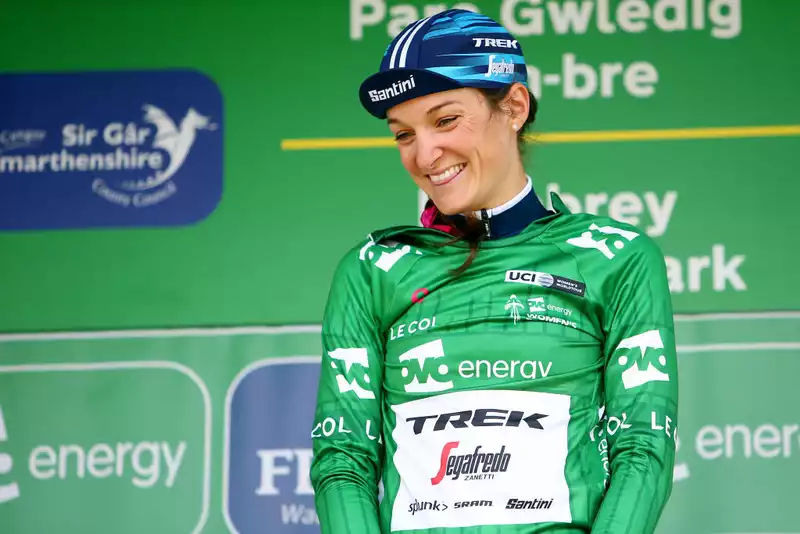The women's professional calendar has had its ups and downs in recent years, especially in the wake of the pandemic.
Lizzie Deignan, who returned to racing at Flèche Wallonne eight months after the birth of her second child, spoke of her disappointment at the cancellation of the women's tour in her home town, but also noted the strength of the British players who have turned pro.
"Obviously, I am disappointed [about the Women's Tour]. As a British rider, I was looking forward to this race and I've won it before.
The Women's Tour, which began in 2014, had grown in popularity as one of the more advanced races on the Women's World Tour since the series began in 2016.
However, it was cancelled in 2020 and postponed until October 2021. It struggled to find sponsors, and plans for live coverage were scuttled due to "commercial realities" after being hit hard for two years by the COVID-19 pandemic. In addition, the organizers of the men's Tour of Britain and the women's tour, Sweet Spot, were forced to cut their prize money by the same amount.
Last year, the event was scheduled to be held on its traditional summer schedule, and was to be held again this year, albeit on a reduced, five-stage schedule from June 7-11. However, organizers announced at the end of March that the race could not be held due to increased running costs and a lack of sponsors; they hope to bring it back in 2024.
Deignan, who won titles in the 2016 and 2019 Women's Tour, did not speculate on why Sweet Spot struggled to finance the race, but said it was hard to understand given the grassroots cycling involvement she has seen.
"I can comment that I am discouraged and I don't really understand how it happened. Because from my perspective, when I am training on the roads in the UK, the level of participation is higher than I have ever seen before. Friends and family are all paying more attention to cycling than ever before. At the grassroots level, I think more and more clubs are getting busier and busier.
"There seems to be a huge influx of participants, but that hasn't translated into national race competition. Whether it is because of red tape, sponsorship, people struggling after the pandemic, or the financial crisis that is happening ...... I don't know the answer to that question. All I can say is that I am disappointed and surprised that we cannot keep more races in the UK."
[18Despite the loss of one of the UK's biggest stage races for women, Dignan said she has seen an increase in British women competing in the top 25 of the Women's World Tour's highest-level races.
One of the standout performances of the year was Pfeiffer Georgi's victory in the Classic Bourges des Pannes. In addition to the Backstedt sisters, Elinor and Zoe, British champion Alice Towers, Abi Smith, Claire Steels, Josie Nelson, Anna Shackley, Anna Henderson, and Elinor Barker, who returned from maternity leave, in the Women's World Tour final. active on the tour.
"I think it was an impressive year for British talent like Pfeiffer Georgi, Anna Henderson, and Alice Towers. More and more British flags are being included in the top 25.
"You may not see any of these athletes standing on the podium now. But in fact, there is a generational change going on. And I hope I am feeling the pressure. I don't want to rest on my laurels with [Team GB's] selection or anything like that."
Deignan has made it clear that he hopes to compete in the Tour de France Femme at Trek-Segafredo in July, the World Championships in Glasgow, and the Olympics in Paris next summer, all with Team GB. However, he does not expect to be automatically selected, as in previous years.
"I don't believe that if I go to Glasgow I will always be in the team.
"I used to think that I would definitely make it to the Yorkshire World Championships (2019), but I don't feel that way about Glasgow. I mean, I think to get into that team you have to prove yourself. And I think that really says a lot about what level of talent you have."
.

Comments